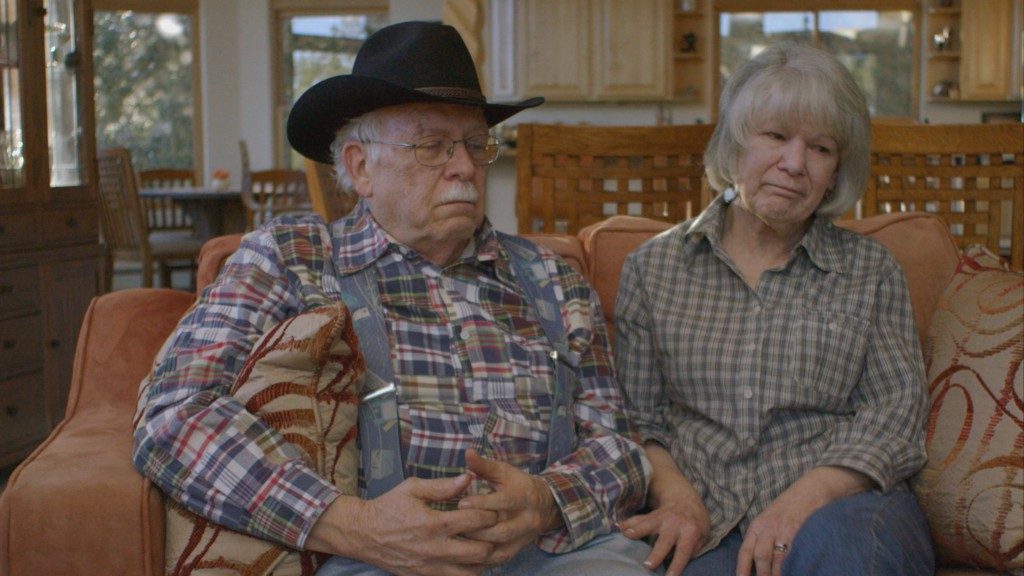Eve Marson is a Harvard graduate, born and raised in New York City. She was the lead producer on the feature documentary “Fed Up,” an exposé of the food industry with journalist Katie Couric and director Stephanie Soechtig. Marson also produced the documentary “The Schedule Makers,” part of ESPN’s 2014 Emmy-winning “30 for 30” series. She has worked on a wide variety of documentary projects, including television programming for PBS, Discovery Channel, and Animal Planet. Her work also includes independent features such as “Craigslist Joe.”
“Dr. Feelgood” will premiere at the 2016 LA Film Fest on June 5.
W&H: Describe the film for us in your own words.
EM: The documentary tells the story of Dr. William Hurwitz, a preeminent pain specialist sentenced to 25 years in prison for drug trafficking. The film focuses on Dr. Hurwitz’s story as a window into the ethical dilemma of opioid painkiller prescriptions. Painkillers give doctors tremendous power to relieve pain — a primary goal of any physician. But this power begets trouble when the same drugs can lead to addiction, abuse, and death.
W&H: What drew you to this story?
EM: I had been thinking about the topic of opioid painkillers for several years, as the daily headlines on abuse and overdose deaths are staggering . Opioids kill more people today than car accidents or HIV. But it wasn’t until I read a magazine profile of a doctor who had been targeted by the government for over-prescribing painkillers that I thought to myself, “This could be an interesting film.”
The story had never been told from the perspective of the doctor before. The doctor’s dilemma is, how can he or she provide compassionate relief to patients in pain, without creating addiction? The question begged to be explored.
I wanted to make a character piece that could inform and deepen our understanding of this issue. Dr. Hurwitz’s story was particularly intriguing to me because the testimonies in this case contradict each other so sharply: some of his patients revere him as a heroic genius, while others condemn him as a fool and a criminal. Each character in the documentary — from the pain patients to the drug dealers to the law enforcers — has a convincing and sympathetic perspective to share.
W&H: What do you want people to think about when they are leaving the theater?
EM: There is complexity to the issue of opioid painkillers, and many different opinions and reactions to the film are valid. Whether you feel sympathy or anger for Dr. Hurwitz, I do hope you walk away with new knowledge of the scope of opioid addiction and abuse today.
I would also hope that you would come away with a deeper understanding of where this problem comes from and how difficult it is to rectify now. In 2016, the federal government issued its first-ever guidelines on opioid prescription. Doctors continue to be targeted as drug dealers, so it is a critical time to start this dialogue.
W&H: What was the biggest challenge in making the film?
EM: A big challenge of this documentary is that we are presenting a trial that takes place in the past, as do many of the events in question. As filmmakers we struggled with how we could visually bring these past stories and happenings to life.
I was reluctant to use recreations, but I kept coming back to that idea because I wanted to put the audience inside the perspective of someone who suffers from chronic pain. What is it like to try to get out of bed in the morning when your body hurts? What is it like to sit in a doctor’s office and be at his mercy? We do a lot of POV recreations that hopefully help to capture those experiences.
W&H: How did you get your film funded? Share some insights into how you got the film made.
EM: We were fortunate to find private investors to fund the film.
W&H: What’s the best and worst advice you’ve received?
The best advice: Feed your crew well.
The worst advice: We’ll fix it in post.
W&H: What advice do you have for other female directors?
EM: Always make sure your voice is the firmest, no matter how many loud men — or women — are around.
W&H: Name your favorite woman-directed film and why.
EM: “The Queen of Versailles,” directed by Lauren Greenfield. Greenfield got incredible access into her characters’ lives, but she never exploits her subjects. She presents her footage without bias or judgment, and lets the audience draw its own conclusions. I admire the layers she is able to create in her storytelling — there’s a lot of nuance there.







